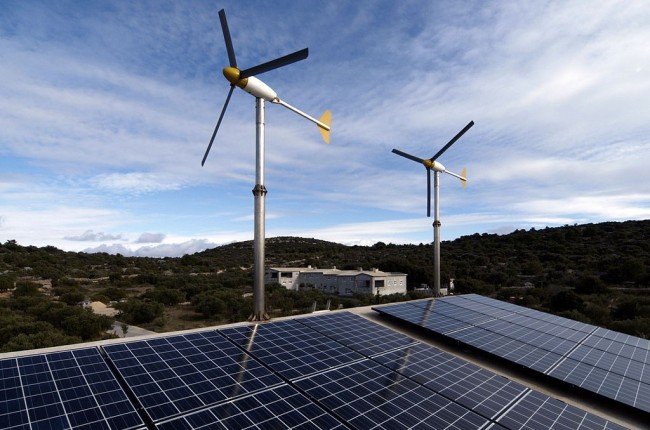
Renewables to claim two-thirds of power plant investments over next 25 years
by Cleantech Canada Staff

Wind and solar are expected to make up about $7.8 trillion of the world's $11.4 trillion investment in energy generation through 2040, report says

Low prices for coal and natural gas are expected to continue, but a new Bloomberg New Energy Finance report says the low prices won’t stop renewables. PHOTO: Nenad Kajić, via Wikimedia Commons
LONDON—The global economy is poised to pump US$11.4 trillion of investment into worldwide power generating capacity over the next 25 years, and according to a Bloomberg New Energy Finance (BNEF) report, about $7.8 trillion of that total will go toward renewable energy.
Though the shift to wind, solar and other renewable technologies mark a “fundamental transformation of the world electricity system,” it won’t happen overnight. The report anticipates it will take until 2027 for renewables to overtake gas as a source of generation and until 2037 to overtake coal.
With onshore wind and solar photovoltaic costs expected to fall sharply, by 41 per cent and 60 per cent respectively, these two renewable sources will become the cheapest source of producing electricity in many countries during the 2020s, and the majority of the world by the mid-2030s. On- and offshore wind will attract $3.1 trillion in investment from 2016-2040, solar will receive $3.4 trillion and hydroelectric power $911 billion, according to the report.
Meanwhile, electric vehicles will present the grid with new challenges, BNEF says. EVs are expected to make up 35 per cent of light-duty vehicles by 2040, tacking a further eight per cent demand on the global grid.
Coal investment is expected to total $1.2 trillion over the next 25 years, while $892 billion will be invested in natural gas plants. Meanwhile, the report says natural gas’s place as a “transition fuel” may also be unfounded.
“Our forecast shows no golden age for gas, except in North America,” Elena Giannakopoulou, senior energy economist on the report, said.
If true, a less-lucrative natural gas market could have significant ramifications for Canada’s energy market.
Despite the positive environmental impact the majority investment in renewable energy will have, Seb Henbest, BNEF’s head of Europe, Middle East and Africa said the world has a long way to go.
“Some $7.8 trillion will be invested globally in renewables between 2016 and 2040, two thirds of the investment in all power generating capacity, but it would require trillions more to bring world emissions onto a track compatible with the United Nations 2 C climate target,” he said.
BNEF expects emissions to peak in China by 2025, but anticipates rising rates of coal-fired generation in India and some of Asia’s other emerging markets will mean global carbon emissions will remain five per cent above 2015 levels in 2040.